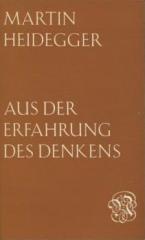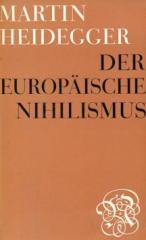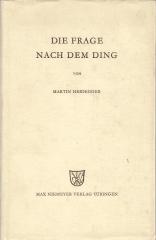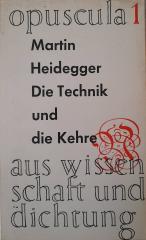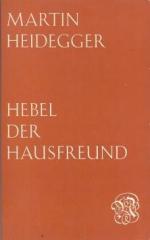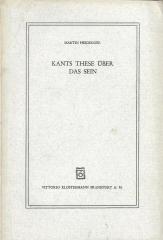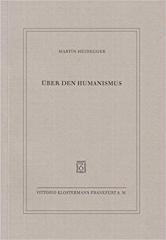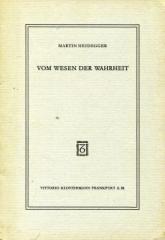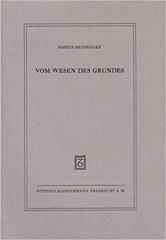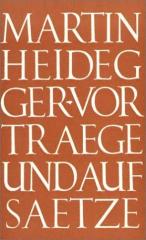Martin Heidegger
Martin Hajdeger (1889 – 1976) je bio nemački filozof i jedan od najuticajnijih mislilaca 20. veka, poznat po svom delu Biće i vreme (Sein und Zeit, 1927), koje je utemeljilo novu dimenziju ontologije – analizu bića kroz egzistencijalnu dimenziju čoveka (Dasein). Rođen je u Meskirhu i studirao je teologiju i filozofiju. Bio je profesor na Univerzitetu u Frajburgu, gde je katedru preuzeo od svog mentora Edmunda Huserla, osnivača fenomenologije.
U Bitku i vremenu Hajdeger uvodi egzistencijalnu analizu ljudske egzistencije, naglašavajući koncept „bića ka smrti“ i autentičnosti. Pitanje smisla postojanja postaje centralno u njegovoj filozofiji. Kasnije, takozvani „kasni Hajdeger“, gde se više bavi jezikom, poezijom i odnosom čoveka prema tehnologiji i suštini bića. Radovi kao što su Šta znači misliti?, Uvod u metafiziku i Pitanje tehnike odražavaju ovu fazu.
Hajdegerova filozofija je bila izuzetno uticajna, ali je njegovo članstvo u Nacističkoj partiji (NSDAP) 1933. izazvalo kontroverze i etičke debate koje su pratile njegov intelektualni doprinos.
Uprkos tome, on ostaje ključna figura u egzistencijalizmu, hermeneutici i savremenoj filozofiji. Njegove ideje su snažno uticale na mislioce kao što su Sartr, Derida i Gadamer.
Naslovi u ponudi
Aus der Erfahrung des Denkens
„Iz iskustva mišljenja” je zbirka kratkih filozofskih beleški, aforizama i meditacija koje Hajdeger piše u kasnijoj fazi svog stvaralaštva. Delo nije sistematsko filozofsko izlaganje već niz misaonih fragmenata o prirodi mišljenja, jezika i bića.
Der europäische Nihilismus
„Der europaische Nihilismus“ je zbirka Hajdegerovih predavanja i beleški iz 1930-ih i 1940-ih, u kojima analizira nastanak i značenje nihilizma u Evropi.
Die Frage nach dem Ding
Pitanje o stvari, zbirka predavanja koje je održao Hajdeger 1935/36, bavi se osnovnim filozofskim pitanjem: Šta je stvar? Njegovo polazište je Kantova Kritika čistog razuma, ali Hajdeger ide dalje, želeći da razjasni samu prirodu stvari iz perspektiv
Die Technik und die Kehre
Tehnika i zaokret je zbirka eseja objavljena 1954. godine, jedno od Hajdegerovih ključnih dela o problemu tehnike. Hajdeger analizira suštinu tehnike i upozorava da savremena tehnologija nije samo skup sredstava, već ima duboku ontološku dimenziju.
Hebel der Hausfreund
„Hebel – der Hausfreund“ je zasnovan na predavanju Martina Hajdegera 1957. godine, u kojem se osvrće na lik i delo nemačkog pisca Johana Petera Hebela.
Kants these über das Sein
Kantova teza o biću, predavanje Martina Hajdegera 1930. godine, fokusira se na analizu Kantove tvrdnje da je biće zapravo postavljanje (Setzung) – to jest čin postavljanja ili potvrđivanja putem prosuđivanja.
Über den Humanismus
U delu „Pismo o humanizmu“ (1947), Martin Hajdeger odgovara na pitanje Žana Bofrea o značenju humanizma, iznoseći kritički stav prema tradicionalnom humanizmu i nudeći novo razumevanje ljudskog postojanja.
Vom Wesen der Wahrheit
Vom Wesen des Grundes
Vorträge und Aufsätze
Zbirka, objavljena 1954. godine, objedinjuje neke od najvažnijih Hajdegerovih kraćih tekstova iz njegovog srednjeg i poznog perioda. U ovim tekstovima Hajdeger razvija ključne ideje o tehnologiji, umetnosti, jeziku i odnosu čoveka prema Biću.
